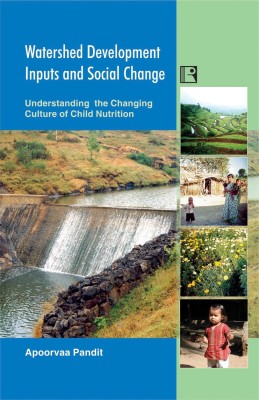Watershed Development Inputs and Social Change(English, Hardcover, Pandit Apoorvaa)
Quick Overview
Product Price Comparison
Watershed development triggers off social change in the rainfed rural areas through poverty alleviation. However, watershed development alone is not adequate to bring about a sustainable social change and development can be complete and sustainable only when its end product ŌĆō better health ŌĆō is achieved. Prosperity that occurs as a result of watershed development and awareness that results from health inputs give better results than a single input. When this change, i.e., the raised awareness of the society, gets ingrained into the culture, it leads to a cultural change thereby increasing the likelihood of sustainability. Similarly, introduction of participatory growth monitoring inputs, alongside integrated watershed development, exemplifies the process of social and cultural change that occurs in the area of child nutrition and health. The present book is an outcome of authorŌĆÖs research work with Watershed Organisation Trust (WOTR). It tests and discusses the results of a new initiative in the areas where watershed development has been a leading input, to bring about a wider social change ŌĆō a change in child nutrition and health for sustainability. This unique impact assessment research study explores the process of change in different communities and different comparative groups. About The Author Apoorvaa Pandit is an anthropologist by training and Principal Research Investigator, Nutrition Study, Watershed Organisation Trust (WOTR), Research Unit, Pune. Her prime areas of work and interest have been tribal culture, rural development, social change and community health. Her recent publication of a book on tribal technology has been acclaimed as a baseline ethnographic work that examines tribal mind by exploring the ŌĆśvirginŌĆÖ area of research.


